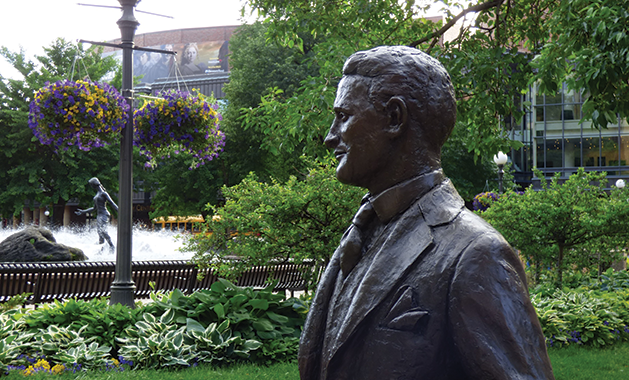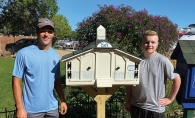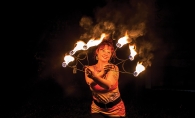
I am Irish. Catholic. Born in Minnesota. I have written since I was in high school. So at a young age, I had to come to terms with F. Scott Fitzgerald. When I first read The Great Gatsby, I identified intensely with Nick Carraway, especially at the end of the novel, when he’s fed up with Eastern corruption, money, all the taking—of things, people, opportunities, without moral regard or hesitation. I took pride in Nick’s “Minnesota Nice.”
You can never forget the final passages in The Great Gatsby, with Nick musing on his “middle-west,” and “the returning trains of my youth and the street lamps and sleigh bells in the frosty dark and the shadows of holly wreaths thrown by lighted windows on the snow.” Ahh—we may be nowhere that matters to anyone in the centers of power in the East, but it’s our nowhere, and therefore special.
Shortly after we got married in 1977, my wife, Kate, and I moved to New York City. We knew no one, had no jobs, no place to live, no prospects. For the first few weeks, we stayed at a cheap convent in Chelsea. Yes, a convent, that opened its few extra cells to temporary residents. There was a picture of The Sacred Heart above the two single beds in our room. We moved the beds together each night. The nuns separated the beds each morning. I remember waking up one night in a panic. I went into the bathroom, splashed water on my face, looked in the mirror and thought—What have I done? This city will eat us alive!
Somehow, we made our way. We found jobs, a place to live. Kate studied acting. I studied poetry and read the slush pile at The Paris Review. Once at a Paris Review party, I found myself staring down on the bald head of the famous literary agent, Swifty Lazar, and thinking, “He’s got freckles on top of his head.”
We never made it, in the sense of the song “New York, New York,” but we managed for seven years. We made friends easily. People liked us because we were earnest, calm, approachable—i.e., we were from the Midwest.
How different for Fitzgerald. He got word that Scribner’s had accepted This Side of Paradise in 1919, and ran out onto Summit Avenue to stop cars with the news. His entrance to the New York literary world was heralded.
Kate and I never jumped in the fountain at the Plaza Hotel, but we did have our Fitzgerald moments—the best was when we drank six bottles of Perrier Jouet Champagne on our fifth wedding anniversary. We sat on a park bench on Boulevard East and got drunk, as all the lights of Manhattan shimmered, and the whole island seemed so close and vibrating. A moment made for F. Scott Fitzgerald. Not too long after that night, we decided to come home.
Tim Nolan was born in Minneapolis, graduated from the University of Minnesota with a B.A. in English, and from Columbia University with an M.F.A. in writing. He is an attorney in private practice in Minneapolis. His poems have appeared in The Gettysburg Review, The Nation, The New Republic, Ploughshares, and on The Writer’s Almanac and American Life in Poetry. His two collections, The Sound of It and And Then, were published by New Rivers Press. His newest collection, The Field, was published by New Rivers Press in 2016.









